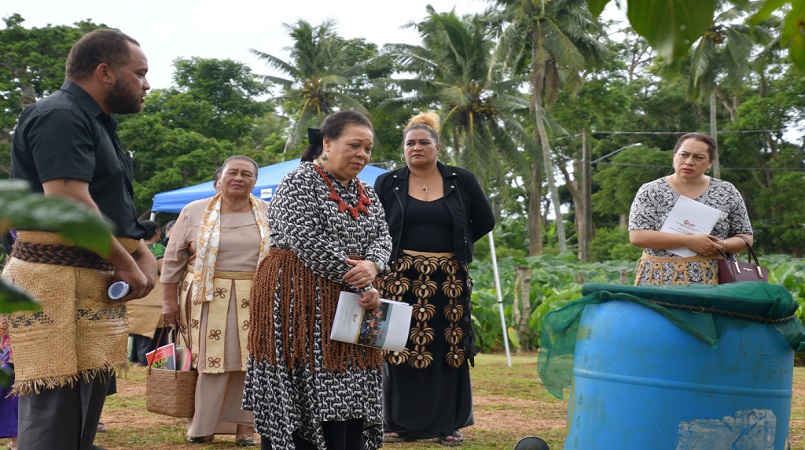
The Queen of Tonga, Her Majesty Nanasipau’u visited MORDI Tonga headquarters today accompanied by ladies of the realm and several community members.
The visit advances a new development goal based on sufficiency economy that has an interconnectedness to the work carried out by MORDI Tonga to rural communities of Tonga.
Sufficiency Economy is an interesting philosophy, one borne of Thai roots and attributed to the late King Bhumibol Adulyadej. The philosophy highlights a balanced way of living predicated on 3 principles – moderation, reasonableness, and self-immunity. Decisions and activities must be carried out at a sufficient level depending on two conditions; morality and knowledge that can be scaled at to any level in society. The philosophy itself bears a new theory in addressing current development challenges – issues of institutions, human capital, environmental sustainability and the role of government. It is a new paradigm of development that aims to improve human well-being as a development goal.
The philosophy was created due to the late Thai Kings concern that modern development stresses economic expansion that may lead to a crisis. Modern development has caused many changes in all aspects of daily life, some have positive impacts such as economic growth, progress of material and public utilities, modern communication infrastructures, improvement and expansion of education and social mobility. However, very few of these benefits have reached rural, remote areas and those underprivileged in society.
The philosophy further stresses that the majority of rural people have enough to subsist first. It emphasizes distribution of income to build overall economic foundation and stability of the country before moving on to higher levels of development.
Sufficiency Economy emphasizes that producers and consumers produce and consume within their limits of existing income. Thereby lessening dependence and increases ability to control production by the people and in turn creates resiliency to shocks from a volatile market system. However, this doesn’t translate to frugality. Indulging in luxuries can happen once in a while, provided there is a means to do so, and being that the Thai culture and society mirrors Tonga’s context – overspending tends to happen very often.
Like the Tongan society, Thailand is an agrarian society and the economy has been geared to an agro-economy. Food and nutrition security is vital to developing a stable economy to a certain degree. The agro-economy is a system that help reduce the risks or economic instability in the long term.
Photo source MORDI Tonga
